Text
🎉 Write characters that you find interesting and compelling.
🎉 Don't worry about making characters too over the top, or 'too much'.
🎉 Write characters who want big things.
🎉 Write characters with conflict between what they want and what they need.
🎉 Write characters who don't realize they are doing harm.
🎉 Write characters who don't know how to communicate well.
🎉 Write characters with people they love in the way of what they want.
🎉 Write characters with amazing abilities who use them in ways that unintentionally fuck them over.
🎉 Write messy characters!
4K notes
·
View notes
Text
thought of the day:
Learning to think again is a weird process.
"Oh, I actually care about things?"
"I can be inspired!"
Active thinking is an essential aspect to being a creative practitioner. We need to be consistently seeking new ways of thinking and new perspectives, otherwise it's a surefire way to get stuck in a rut.
1 note
·
View note
Text
To the writer who needs to hear it…
YES. Your story DOES matter. It wouldn’t exist without you. You are in charge of bringing it to life because other writers don’t possess your style / voice. You are the only person capable of creating your story.
You are an unique, creative, worthy human being. Go show the world what you’re capable of.
5K notes
·
View notes
Quote
The abject has only one quality of the object - that of being opposed to I. If the object, however, through its opposition, settles me within the fragile texture of a desire for meaning, which, as a matter of fact, makes me ceaselessly and infinitely homologous to it, what is abject, on the contrary, the jettisoned object, is radically excluded and draws me toward the place where meaning collapses.
Julia Kristeva, The Powers of Horror. An Essay on Abjection
103 notes
·
View notes
Text
I know that car
I've seen it driving before
One blown tail light and a racing stripe
But I ride the train, yeah I ride the train
I ride the train, yeah I ride the train
Wonder where we're going today
On my track with a hand pressed up on the glass
We sway and strain like a farmer's field
And we wait for rain, yeah we wait for rain
We wait for rain as they all change lanes
Wonder where they're going today
So I saved my pennies, nickels, and dimes
To buy an old car with a racing stripe
I could be anywhere I dreamed I might go
I know that train, yeah I know that train
I know that train, yeah I know that train
So well we ended up in the same place

0 notes
Text
prompt 1541
Choose a book from your shelf and read the first page. Does it make you want to read further? All of the items on this list should be present, even in the first 17 lines of a book:
Story questions
Tension (in the reader, not just the characters)
Voice
Clarity
Scene-setting
Character
Rewrite the page to contain all of them. The questions are from the Flogging the Quill web site.
313 notes
·
View notes
Text
“If you can tell a story as briefly as possible, it’s more dramatic. If it’s too long, then it has the problems of pacing, it could get a little slow. But the shorter you can make a story, the better.”
— Joyce Carol Oates
188 notes
·
View notes
Text
Idle chatter hitting the roof
clouds with mouths.
Dreams in the shallow,
end of an ever expanding sink.
The dishes need cleaning
one, two and another
They replicated and dance
The song bleeds
as if it is alive clanging
trying to be noticed
by the clouds
up, up and away.
Forks and knives to finding
spoons in soap.
The play adding new characters
banging with pans to fragile cups
semi filled ringing like singers.
The deeper end requires a boat
and it came
the dishes need cleaning
and cleaning and cleaning
I guess this
will do.
Keep Me Busy
2 notes
·
View notes
Text
Images have a peculiar way of expressing emotion:
Here is a photo of a window.
But it's so much more than that - what does it make you feel? What does it represent?
A window could signify some sort of boundary. Perhaps you're inside, looking out at the world that seems too large for you to inhabit. Or, you could be on the outside, looking in at a life in which you ultimately find yourself excluded.
But maybe a picture of a window is just a window...
It's not up to me to decide.

0 notes
Text
Character Primaries (the "WHY") & Sources of Narrative Conflict
Conflict in fiction provides tension, stakes, and perhaps most importantly room for growth and change.
This series of posts will take a look at narrative conflict and how to define, track, codify, and cause it using @sortinghatchats Primary House sortings.
(Unfamiliar with Sorting Hat Chats? Check out a broader overview of our system here.)
Let's start with...
CONFLICT BETWEEN CHARACTER AND SELF
The conflict here is a disconnect between what a character does and what they think they should be doing.
Framing characters this way gives us a potential and a direction for growth and change. If you start your story with a character who is falling short of their own expectations, it can be particularly satisfying to see them grow and reach those expectations by the end.
For instance, Jason Grace of Rick Riordan’s The Heroes of Olympus books is a Hufflepuff Primary who leaves an insular childhood in a Roman camp of demigods and finds himself meeting a larger and larger world. While he’d been satisfied with his original home and community, he’s faced with new waves of people, magical creatures, and even gods to sympathize with and consider.
Jason had known his place in his first community, but much of his journey in the series is finding a way to express his Hufflepuff ideals of fairness and empathy in a world that is so much bigger and more populated than he’d understood. As Jason grows more aware of the larger world, it’s a burden he lays on himself to rise up and meet the world with the evenhanded compassion he expects of himself.
Sarah, the protagonist of Orphan Black, is also an example of a character struggling with their own self and their own morality.
Sarah, con artist and Slytherin Primary, begins the story devoted to her young daughter. However, she has a long history of failing to properly prioritize and protect her daughter-- a failure of a loyal Slytherin's moral code.
Among the show’s government conspiracies and genetic engineering plots. one of Sarah’s main challenges is living up to her own Slytherin standards of loyalty and devotion, and properly being there for her child.
Jason and Sarah are both positive examples of characters who succeed in growing to meet their own expectations-- but watching a character be forced to edit, reinvigorate, or fail to meet their own moral code can be satisfying in different ways.
The standards a character holds themself to, and the ways in which they fail and succeed at meeting those standards, can drive a character’s inner and outer journey.
CONFLICT BETWEEN CHARACTER AND CHARACTER
When characters have different moral frameworks, they can disagree on what and how to prioritize, and ultimately which decisions to make.
Where a Slytherin Primary values their own wellbeing and the wellbeing of their closest allies first and foremost, a Ravenclaw follows the ideals they have considered and decided upon, even at the expense of themself and their friends. To a Ravenclaw Primary, this sacrifice is moral. To a Slytherin Primary, it’s wrong to abandon your own.
This basic disconnect of morality, if pushed into an ultimatum, can lead to irreconcilable conflict between your characters without sacrificing your readers’ ability to empathize with both sides.
A Resonance of Conflict
You can also generate conflict between characters with the same basic moral framework—the same Primary. It’s important here to emphasize that Primaries define a moral framework, not the actual contents of that morality.
Characters with the same basic framework—a Gryffindor’s faith in an inner moral compass, for instance—can still have wildly different views on right and wrong.
In the fourth season of the animated series The Legend of Korra, the main hero/antagonist pair are two Gryffindor Primaries.
Korra, our protagonist, faces off against Kuvira, a powerful, assured general with a strong vision for a united Earth Kingdom. They both come by their moralities through a strong moral compass, internal certainty, and a certain ethical stubbornness– but Korra is the maturer of the two Gryffindors, less arrogant, more selfless, more humble.
The season uses bold, brash Kuvira to show how far Korra has come from the similarly bold, brash girl of season one, whose thoughtlessness left damage in her wake.
Cooperation is as important as conflict in a story.
Characters supplement and strengthen each other—for instance, a Gryffindor Primary intent on a crusade might be backed up by a Slytherin who doesn’t feel strongly about the crusade, but nonetheless has skin in the game because they love the Gryffindor and want to keep them safe.
A Ravenclaw might decide on the same style of community-based morality as a Hufflepuff, reaching the same conclusions from disparate paths.
It can add a diversity and nuance to the various stakes and motivations in your story to have characters take different paths to reach similar conclusions. It can make your world and your characters feel more complex and real.
Commiseration turns to Chaos
Your characters might also begin the story holding the same beliefs, but then disagree and grow apart as the story pushes them into situations that challenge those beliefs.
For instance, a Slytherin Primary’s loyalty-based morality requires them to stand by those they love. A Gryffindor who also values community and loyalty, perhaps, might make those same decisions.
But forced into a more extreme situation, where a Slytherin might continue standing steadfast, a Gryffindor could make a different moral choice, blindsiding the Slytherin who thought they were on the same page.
This sort of conflict can add feelings of surprise and betrayal while keeping a consistent characterization.
In Smallville, Gryffindor Clark Kent and Slytherin Lex Luthor become friends in Clark’s youth, before their inevitable eventual rivalry as adults. It’s this Primary divide that drives them apart in the show.
Lex bonds hard to Clark with all of a young, healthy Slytherin’s generosity. Clark returns the affection, but when push comes to shove he’s a Gryffindor. He’ll do what’s right before he does what’s right by Lex, no matter how much he likes his friend.
Lex sees this as betrayal, long before Clark is actually willing to act directly against him. Similarly, Clark sees Lex’s partisanship as a growing sign of evil or untrustworthiness, especially as Lex builds more walls between them.
Younger and less experienced characters are more likely to be blindsided by this sort of Primary mismatch. This might be the first time they are forced to recognize their inability to consistently predict people they think they understand. They are more likely to assume that people who make the same decisions as they do arrive at those decisions by the same reasoning.
One Character's Trash...
Similarly, actions that are satisfying for one Primary House sorting can be unsatisfying for another.
You can have characters who do the same things but for different reasons and with different conclusions about whether that action is "good" or not.
Maybe the Gryffindor wasn’t ever convinced by the Slytherin-looking morals they were sporting. Maybe they thought it was a weakness, a sacrifice they were making for their family, or maybe standing by their loyalties was the best they thought they could do as a powerless person in an unjust world.
When they reclaim their Gryffindor moral compass, or embrace their ability to act on what they think is right, they abandon the Loyalist morality that was unintuitive to them.
For the Gryffindor it’s a moment of freedom, realization, and self-actualization-- but for their Slytherin, who’s deeply satisfied and validated by the morality they thought they shared, this can be an especially shocking and confusing betrayal.
...
Next, we'll talk about conflict between Character and World, and between Character and Story.
276 notes
·
View notes
Photo
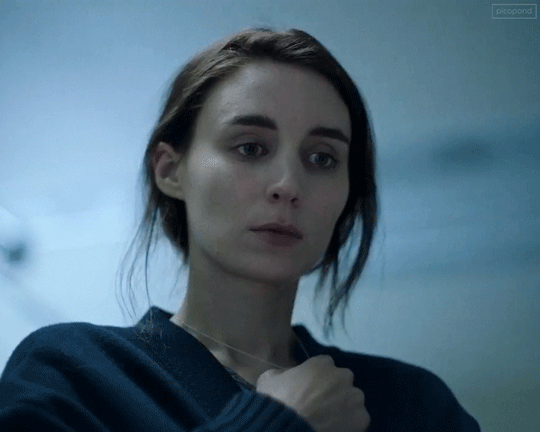
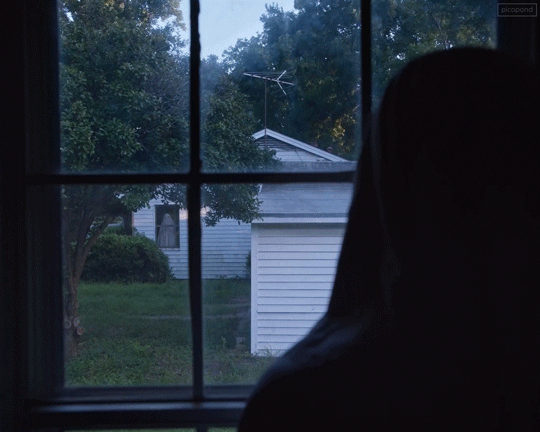

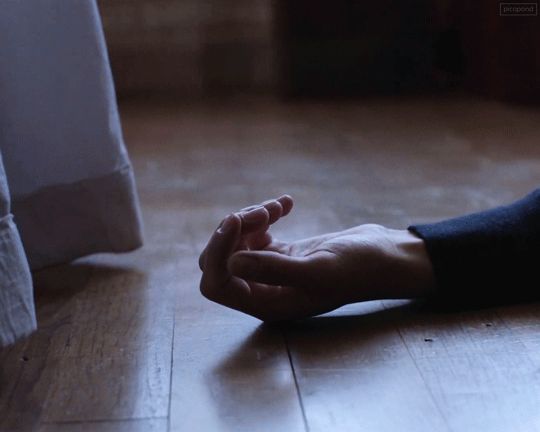

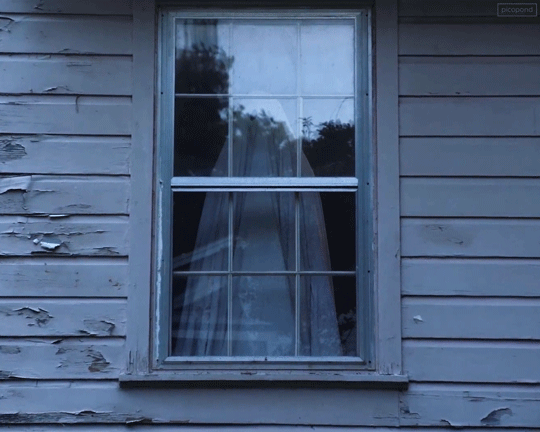
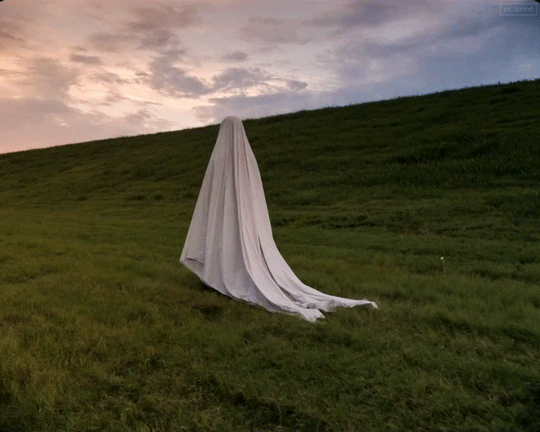

get to know me ➜ favourite films [1/?]
↳ a ghost story (2017)
dir. david lowery
“What is it you like about this house so much?”
“History.”
47 notes
·
View notes
Text
Movie review: A Ghost Story
Some say that it is a masterpiece, a poignant story.
The other half? They reckon it’s insufferably and utterly boring.

However, this isn’t your typical ghost story.
We spend the entirety of the 2017 film’s 90 minutes with the ‘ghost’ (Casey Affleck under a literal sheet). This visual gag is widely mocked, with reviewer Phil De Semlyen recounting how Affleck “[trails] sheets behind him like a Scooby-Doo villain on a budget”.
Another source of ire with the film is regarding its slow pacing. Director David Lowery seems to crave long, still shots.
“An empty exercise in imitative long-take aestheticism”. (Slant Magazine)
Lowery defends his use of the camera being detached from the action, saying that “if you have a really good actor you can put the camera on the other side of the room and it’ll still feel like a close up”.
I’m tending to agree with him here - many parts of the story feel oddly intrusive even though the cinematography doesn’t support this in the traditional sense.
These uncomfortable scenes amplify the emotional impact, instilling a sense of reality otherwise unobtainable.
While I don’t personally vibe with the term ‘meditative experience’, I agree that this is the kind of peaceful mindset generated by the film. Each composition is treated as if a photograph, asking us to further commit to the images. As a result, every shot is worth a lot more in the simple narrative, and we are left trying to figure out what they might mean and our response to them.
Past, present and future coexist, a kind of detachment we experience alongside Affleck’s character. He’s stuck watching life move on without him. Considering there’s no dialogue for the majority of the run time, I’m fascinated by how such a haunting story can be told with purely visuals alongside an evocative score.
#a ghost story#ghost#ghost story#david lowery#lowery#a24#a24 movies#a24 film#aesthetic#aestheticism#review#movie review
0 notes
Text
Belief loop
Beliefs create your thoughts.
Thoughts create your emotions.
Emotions create your actions.
1 note
·
View note
Quote
…what if we should turn around the topic according to which, in our social interactions, we wear masks covering out hidden true face? What if, on the contrary, in order for us to interact in public with our true face, we have to have a mask somewhere hidden, deposed, a mask rendering our unbearable excess, what is in us more than ourselves, a mask which we can put on only exceptionally, in the carnevalesque moments when the standard rules of interaction are suspended? In other words, what if the true function of the mask is not to be worn, but to be kept hidden?
Slavoj Žižek
(via kittenplan)
8 notes
·
View notes
Text
Mirror/Self
21/03/21
You see them and they stare at you, they shift their weight from side to side and they compulsively straighten their neck and back out of the permanent slump that you have given them. They look precisely like you, the move precisely like you.
When you try to speak, it is their mouth that opens.
‘What makes us different?’
You’re sure you know the answer to this question, but it was not them asking you, it was you asking them. And your mouth opens with their answer.
‘Why must we be different?’
You’re sure you know the answer to this question. You’re sure, as you and they reach up to scratch your and their ear. You know why you and they must be different, but as they stare and you stare, you struggle.
Their mouth opens. ‘There is always difference.’
Is that true? Is there always difference? Is that what you wanted to say? Is that the thought that guides your recognition?
Your mouth speaks their words. ‘We see, we touch, we understand the same.’
‘We don’t.’ Their mouth speaks your words. ‘We do not understand the same.’
Both of you speak. ‘We see each other, we see the other that reflects us and we see our whole selves and we see nothing. We understand the same, we see the same.’
They speak for you. ‘We are not the same.’
Still that isn’t what you meant to say. Still that is not the thought that guides your recognition. But you struggle, you struggle to find the words for them. You struggle to fit your thinking together.
You speak for them. ‘We exist the same.’
And maybe they have struck on it. Maybe they have ordered your thoughts enough.
They smile as they speak for you. ‘We exist the same. We see the same. We see the whole of us staring back. We are not whole.’
You laugh. ‘We are not whole.’
You reach out to touch them and feel their warm fingers against yours as your hands meet in the middle. You press your palm to theirs and you lean closer until your forehead meets theirs. They are warm, as you are warm.
You and they speak at the same time. ‘We see the same, we see the whole of ourselves and we see the lie of that wholeness. We are not incomplete. There are no cracks, no imperfections in what we see.’
They speak for you. ‘We are cracked, we are imperfect.’
You smile as you speak for them. ‘We are complete.’
3 notes
·
View notes
Text
Desire and Satisfaction in media narratives
"Desire is the essence of man" (Lacan)
Desire is a continuous force, and we as humans are never free from it. We always want more than what we already have.
We always desire for more; we can never be truly satisfied.
This interplay of desire and satisfaction is a process that is fundamental to humanity - and therefore is an integral part of considering and constructing new characters.
What do your characters want?
What are they willing to do to get what they want?
It should be difficult for them to achieve their goals - because as soon as they get what they want, the story becomes boring.
Tension is generated from processes of desire: the feeling of wanting something is a lot more powerful that having something.
If your characters already have everything they want then there is no room for development; no room to tell a story.
Yes, it creates painful, heart-wrenching stories - but this is what inspires an emotional investment in your audience. They will begin to desire the same things as your characters.
And in this sense, you have power over your audience: the power to inspire, give hope, educate... the list goes on.
#writer#film#filmmaker#screenwriter#lacan#jacques lacan#desire#satisfaction#story#character analysis#character#character writing#human nature#power
2 notes
·
View notes
Text




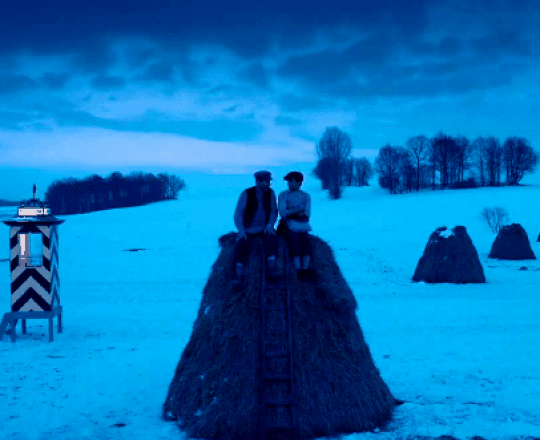

You see, there are still faint glimmers of civilization left in this barbaric slaughterhouse that was once known as humanity. Indeed that's what we provide in our own modest, humble, insignificant... oh, fuck it.
THE GRAND BUDAPEST HOTEL (2014) dir. Wes Anderson
770 notes
·
View notes